(Part 2) Best number theory books according to redditors
We found 205 Reddit comments discussing the best number theory books. We ranked the 56 resulting products by number of redditors who mentioned them. Here are the products ranked 21-40. You can also go back to the previous section.

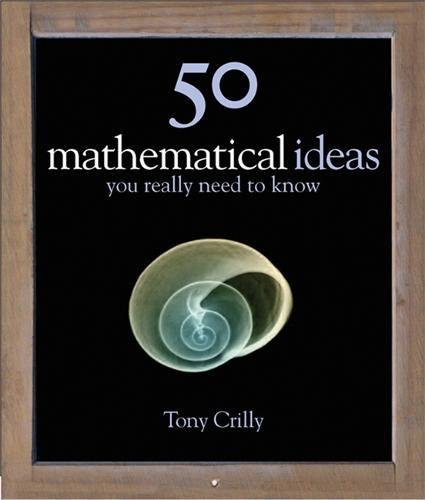


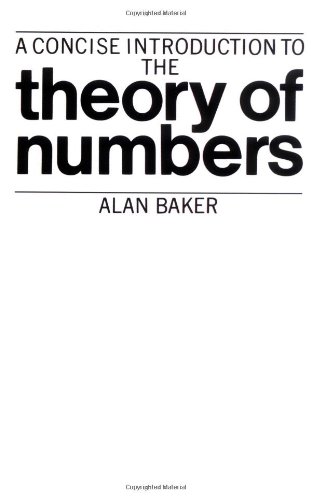
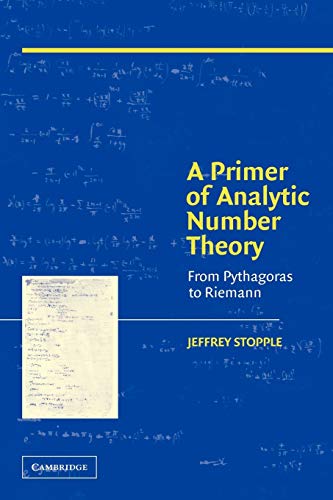




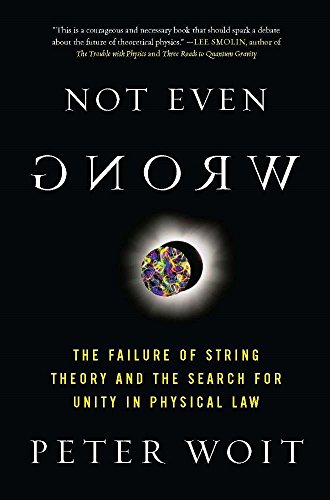
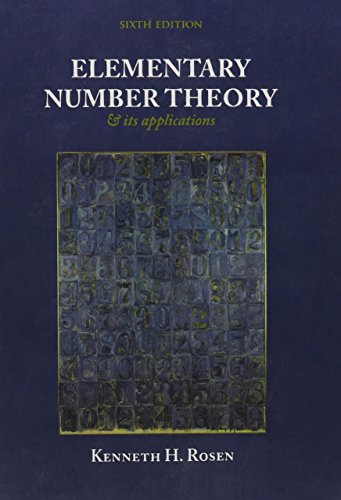

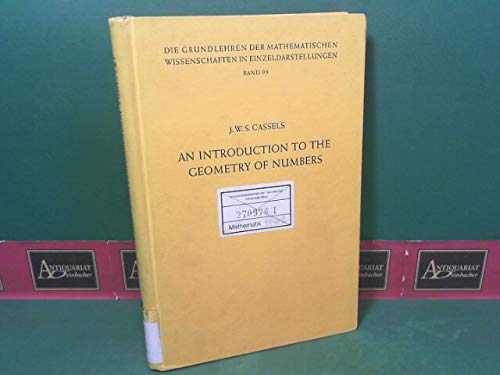

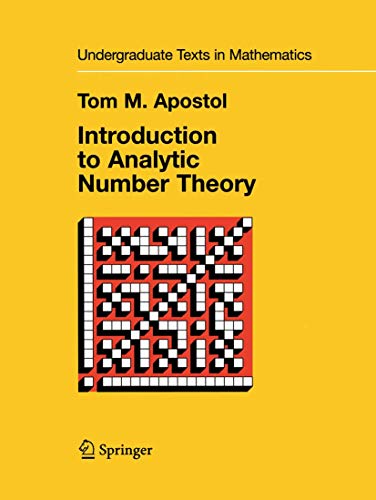


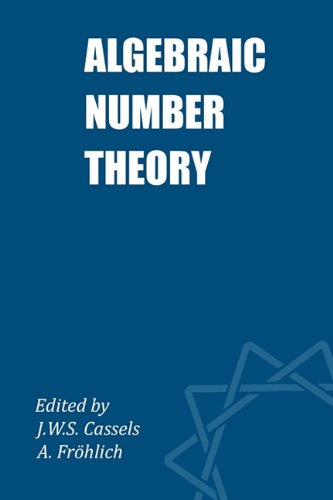
Here's my rough list of textbook recommendations. There are a ton of Dover paperbacks that I didn't put on here, since they're not as widely used, but they are really great and really cheap.
Amazon search for Dover Books on mathematics
There's also this great list of undergraduate books in math that has become sort of famous: https://www.ocf.berkeley.edu/~abhishek/chicmath.htm
Pre-Calculus / Problem-Solving
Calculus
Linear Algebra
Differential Equations
Number Theory
Proof-Writing
Analysis
Complex Analysis
Functional Analysis
Partial Differential Equations
Higher-dimensional Calculus and Differential Geometry
Abstract Algebra
Geometry
Topology
Set Theory and Logic
Combinatorics / Discrete Math
Graph Theory
P. S., if you Google search any of the topics above, you are likely to find many resources. You can find a lot of lecture notes by searching, say, "real analysis lecture notes filetype:pdf site:.edu"
I taught myself elementary Number Theory out of his book A Concise Introduction to the Theory of Numbers. It's a pretty dense little book, probably a little too intimidating for most beginning students unless you're willing to expound upon it, but it's nice to have a fairly dense number theory course that fits in a coat pocket.
Sorry to hear of his passing.
Number Theory. This starts out kinda easy but blows up in your face, I've been looking into L-functions a lot recently and they just make me feel so inadequate as a mathematician; contains exceptional amounts of Representation Theory, Functional Analysis, Real/Complex Analysis, Algebraic Geometry, Algebraic Number Theory, p-adic Analysis, Elliptic Curves, Automorphic Forms, Class Field Theory, Riemann-Roch Theory, Etale-Cohomology... crazy!
Anyhow, a lot of Algebraic Number Theory books spend a lot of time in the beginning defining Number Fields and extensions, going into ramification, splitting of primes etc. I think people need to learn a bit more about solving Diophantine Equations in Z and Q before looking at general number fields. So, if D(x_1,...,x_n)=0 is a Diophantine Equation, then we can look at D_p^k (x_1,...,x_n)=0, where everything reduced mod p^k . Clearly if D has a solution in Z, then each D_p^k will have a solution. Now, there are a lot of p^k 's, but luckily we can reduce the number of equations we have to check by looking at the p-adic fields. It turns out that D_p^k has a solution iff the D^p has a solution (where D^p is D considered as an equation in the p-adic field). So, this suggests that we try and figure out if an equation is solvable in all the p-adics, then is it solvable in Q?
It turns out that this is true, when D is quadratic (each term has total degree at most 2) with the added stipulation that D also have a solution in R, this is called the Hasse Principle. Fermat's Theorem gives a counter example for the case when the degree is greater than 2, since x^n +y^n -z^n =0 is solvable in all the p-adics and R. The appearance of R in this theorem is the first suggestion that something about R behaves like a prime, and it is generally treated as a "prime at infinity".
The thing I really want to call your attention to is the fact that we are looking at each prime individually to see if there is a solution on the whole. Looking at the p-adics means we are looking "locally", and looking at Q means we are looking "globally". This is justified in the sense that we can add a topology to the set of prime numbers that makes each prime a local entity and the whole of Z is the global thing. This kind of Local-to-Global principal is viral throughout mathematics, Category Theory formalized treatment like this with the concept of a Sheaf. I just think it is very cool that this extremely geometric principal, that lays the foundation for Differential Geometry (things are nice locally, so we see what happens there and figure out what we can extrapolate globally), has been very fruitful in the study of a field that (initially) seems as far as you can get from DG.
L-Functions, Zeta-Functions etc are studied by trying to express them locally in terms of primes to figure out their global properties. For example, the Riemann-Zeta Function is defined by a sum over all the powers of integers, but Euler proved that it can, instead be written as an infinite product of functions relating to the primes, giving a local interpretation to a function defined globally. Using this new Euler Decomposition, we can prove important analytic properties about the Zeta-Function and it's nifty functional equation (that secretly contains info about the "prime at infinity").
For more info on Number Theory, especially at the advanced undergrad level, I recommend A Classical Introduction to Modern Number Theory, great fucking book.
While you are probably not going to understand the gist of papers on number theory by reading an introductory book, the best book, to my mind, is Ireland and Rosen.
Yup, I get that. I'm not advocating for the imperial system in general, but a base-12 instead of base-10 system for metric. It's the reason the guy you were replying to is advocating for feet/inches, I presume.
Edit: for this and more, check out Here's Looking at Euclid, a look at how our numbering systems came to be and how they interact with the human mind! Good read.
I think an introductory book on number theory would be useful, probably more immediately useful than a book on abstract algebra. Algebra is something you'd want to look into eventually, but you don't need all of the associated machinery to learn about Z/nZ, and algebra may be more abstract that you want, as an introduction.
I had Rosen, which was okay, but not great. Definitely not worth the price. Still, it may be useful to see the typical ToC of an intro number theory book so you can try to find a better one.
This is a very good book: http://www.amazon.com/Introduction-Analytic-Number-Undergraduate-Mathematics/dp/1441928057/ref=sr_1_1?ie=UTF8&qid=1371966075&sr=8-1&keywords=introduction+to+analytic+number+theory
There's loads of good entry-level number theory books. I would seriously recommend this one
It looks short but covers quite a lot considering that including constructing a transcendental number and the group law on elliptic curves.
If you're a math hobbyist without a lot of formal experience, I think that it'd be difficult to access most books. Apostol is definitely really good, as well as all the suggestions others are making. Strayer is great for someone without a lot of math experience, I'd recommend that one.
Number theory problems are the most common in Project Euler.
Here's the book I learned from. It's good for the intro level. There may be cheaper good ones out there...
めちゃくちゃ面白いでこの本
If you mean lattices as in geometry of numbers, Cassels' book is pretty good:
http://www.amazon.com/Introduction-Geometry-Numbers-mathematischen-Wissenschaften/dp/B0000BH2Z9/ref=sr_1_4s=books&ie=UTF8&qid=1377400524&sr=1-4
If you mean lattices as in ordered sets, I don't know, but someone else posted a suggestion.
Yes. Absolutely. I hated math until grade 12. Then I worked really really hard and had 3 tutors (really) and still barely passed. I am bad at math. But now I fucking love it. I really love math puns.
Take a look at a book called Here's Looking at Euclid. I don't understand a lot of what's in it, but it gives me way more of a drive to figure shit out than "you should know this" and "you may need this some day".
I mean, clearly I'm a huge nerd. But I'm a huge nerd who spent all of my primary and secondary education loathing math to the very core of my being. It made me cry myself to sleep at night. The way we teach math really really needs to be revised.
Agreed.
Lay's was the textbook for my proofs course and I was rather pleased with it. Also because it gently introduces you to analysis, you will be more prepared than other students when you take analysis.
I would also possibly suggest an intro to number theory book. Problems in number theory are typically very easy to comprehend (and I think rather fun), giving you a chance to adopt a more proof-based thought pattern without also being burdened with too many theorems and definitions. Many intro to number theory books (like this one)
have exercises that encourage you to find/prove patterns and theorems yourself, exercises which are really nice to think about and digest in your leisure time rather than have to think about with a homework deadline in mind.
What area of mathematics you love? Geometry? Number theory?
In Number theory, I recommend J.H. Silverman A friendly introduction to number theory, it's a good book that let me jump to solid mathematics from mathematics history book.
Finite calculus is awesome, but it doesn't even have its own Wikipedia article. A Primer of Analytic Number Theory has the first chapter devoted and with more details than Gleich's tutorial (for example, the relation between the harmonic function and the logarithm)
I haven't seen it covered in a classroom. I don't know if there's much theory behind it, but I remember someone mentioning that the first chapter of A Primer of Analytic Number Theory by Stopple goes into greater depth on the topic.
I would say that it would depend on the problem. If you cannot solve the first ten, I would be worried, as they can all be solved by simple brute force methods. I have a degree in Astrophysics, and some of the 300 and 400 problems are giving me pause, so if you are stuck there you are in good company.
There are elegant solutions to each problem, if you want to delve into them, but the first handful, the first ten especially, can be simply solved.
Once you get beyond the first ten or so, the mathematical difficulty ratchets up. There are exceptions to that rule of course, but by and large, it holds.
If you are interested in Number Theory, the best place to start is a number theory course at a local university. Mathematics, especially number theory, is difficult to learn by yourself, and a good instructor can expound, not only on the math, but also on the history of this fascinating subject.
Gauss, quite arguably the finest mathematician to ever live loved number theory; of it, he once said:
> Mathematics is the queen of sciences and number theory is the queen of mathematics. She often condescends to render service to astronomy and other natural sciences, but in all relations she is entitled to the first rank.
Although my personal favorite quote of his on the subject is:
> The enchanting charms of this sublime science reveal themselves in all their beauty only to those who have the courage to go deeply into it.
If you are interested in purchasing some books about number theory, here are a handful of recommendations:
Number Theory (Dover Books on Mathematics) by George E. Andrews
Number Theory: A Lively Introduction with Proofs, Applications, and Stories by James Pommersheim, Tim Marks, Erica Flapan
An Introduction to the Theory of Numbers by G. H. Hardy, Edward M. Wright, Andrew Wiles, Roger Heath-Brown, Joseph Silverman
Elementary Number Theory (Springer Undergraduate Mathematics Series) by Gareth A. Jones , Josephine M. Jones
and it's companion
A Classical Introduction to Modern Number Theory (Graduate Texts in Mathematics) (v. 84) by Kenneth Ireland, Michael Rosen
and a fun historical book:
Number Theory and Its History (Dover Books on Mathematics) Paperback by Oystein Ore
I would also recommend some books on
Markov Chains
Algebra
Prime number theory
The history of mathematics
and of course, Wikipedia has a good portal to number theory.
Woit's blog is a good source on all of that:
https://www.math.columbia.edu/~woit/wordpress/
Woit and Lee Smolin's books on the subject:
https://www.amazon.com/Not-Even-Wrong-Failure-Physical-ebook/dp/B00JLMMEQQ/
https://www.amazon.com/Trouble-Physics-String-Theory-Science-ebook/dp/B003WUYP56
They were both a bit ostracized for being a decade or two ahead of everyone else in their criticism of string theory and philosophical manias.
I think at some point physics got hijacked by pure mathematicians.
Proofs: Hammack's Book of Proof. Free and contains solutions to odd-numbered problems. Covers basic logic, set theory, combinatorics, and proof techniques. I think the third edition is perfect for someone who is familiar with calculus because it covers proofs in calculus (and analysis).
Calculus: Spivak's Calculus. A difficult but rewarding book on calculus that also introduces analysis. Good problems, and a solution manual is available. Another option is Apostol's Calculus which also covers linear algebra. Knowledge of proofs is recommended.
Number Theory: Hardy and Wright's An Introduction to the Theory of Numbers. As he explains in a foreword to the sixth edition, Andrew Wiles received this book from his teacher in high school and was a starting point for him. It also covers the zeta function. However, it may be too difficult for absolute beginners as it doesn't contain any problems. Another book is Stark's An Introduction to Number Theory which has a great section on continued fractions. You should have familiarity with proof before learning number theory.
The knowledge required will take you most, if not all the way, through your Ph. D. dissertation in number theory. Focus on getting admitted to a good graduate school and finding a good advisor, but in the meantime you might want to try reading Hartshorne and Neukirch.
These are likely to be the hardest math books you've ever read, but you have to start somewhere! (though I might throw in Atiyah-Macdonald for some more commutative algebra background for Hartshorne)
It might be fun for you to start with an elementary number theory book, such as this one. Number theory is incredibly rich and deep, and pretty much any area of math has been touched by number theory in some sense. The problem is that it's hard to learn math in isolation. It helps to know some other people who care about learning math. You can of course keep posting here, but I'm curious - do you know anybody in real life who shares this interest?
As in financial scamming? Yeah, that's low-effort in my eyes. Sorry OP, but you're going to need a better idea. If you can find a copy of [this] (http://www.amazon.com/Mathematical-Ideas-Really-Need-Series/dp/1847240089) book, take a look. You might find something interesting.
This book has a great non-technical chapter about this.
There are a lot of canonical texts on both subjects. One of the classics on ant is Neukirch.
You should definitely find a book which has a good coverage of transcendence degree and transcendence basis. It's a simple concept but really enlightening.
I like Solved and Unsolved Problems in Number Theory by Daniel Shanks. It takes a unique approach, showing how particular problems led to the development of number theory.
For a more "standard" approach I like An Introduction to Number Theory by Harold Stark, which was the textbook used in the course I took as a sophomore.
This book by Rosen seems to be the one that held it's value the best. https://www.amazon.com/Elementary-Featured-Kenneth-Published-Hardcover-dp-B00HQ0Y4Q8/dp/B00HQ0Y4Q8/ref=mt_hardcover?_encoding=UTF8&me=&qid=1571925354